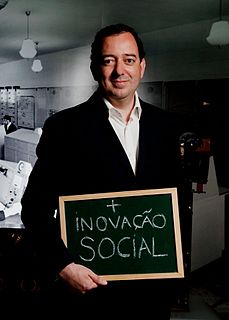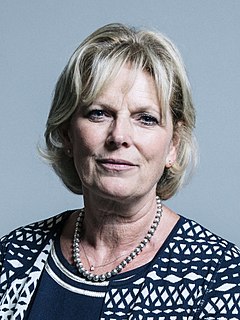A Quote by George Osborne
Of all the public services, education is the one I'm most interested in. You get a more dynamic economy, you deal with most social problems, and it's morally right.
Related Quotes
In the eighties and nineties, the innovation agenda was exclusively focused on enterprises. There was a time in which economic and social issues were seen as separate. Economy was producing wealth, society was spending. In the 21st century economy, this is not true anymore. Sectors like health, social services and education have a tendency to grow, in GDP percentage as well as in creating employment, whereas other industries are decreasing. In the long term, an innovation in social services or education will be as important as an innovation in the pharmaceutical or aerospatial industry.
Sending our kids in my family to private school was a big, big, big deal. And it was a giant family discussion. But it was a circular conversation, really, because ultimately we don't have a choice. I mean, I pay for a private education and I'm trying to get the one that most matches the public education that I had, but that kind of progressive education no longer exists in the public system. It's unfair.
If the government were to invest that money in higher education and public services, these would be far better investments. But administrators and academics in the U.S. for the most part don't make these arguments; instead they have retreated from defending the university as a citadel of public values and in doing so have abdicated any sense of social responsibility to the idea of the university as a site of inspired by the search for truth, justice, freedom, and dignity.
They're rights that should be endemic to any democracy. The right to a free quality education, from elementary school right through higher education. The right to have a decent social wage. The right to a decent job. Political rights; the right to vote. These are all parts of the social contract, from the New Deal onwards, that never went far enough.
The nature of the issues facing U.S. students is a bit more complicated in the U.S. because the assault on the social state, until recently, has been more incremental [i.e. the stripping of public services and so forth], whereas in Britain with the rise of the conservative-liberal government, it was immediate and bold in its assault on the social state and higher education.
Public education is a great instrument of social change. Through it, if we so desire, we can make our country more nearly a democracy without classes. To do so will require the efforts of us all-teachers, administrators, taxpayers and statesmen. Education is a social process, perhaps the most important process in determining the future of our country; it should command a far larger portion of our national income than it does today.
We destroy the most hallowed of relations, when we replace home education by social.And your education! Is not that also social, and determined by the social conditions under which you educate, by the intervention, direct or indirect, of society, by means of schools, etc.? The Communists have not invented the intervention of society in education; they do but seek to alter the character of that intervention, and to rescue education from the influence of the ruling class.
Most of us are conditioned for many years to have a political viewpoint - Republican or Democratic, liberal, conservative, or moderate. The fact of the matter is that most of the problems that we now face are technical problems, are administrative problems. They are very sophisticated judgments, which do not lend themselves to the great sort of passionate movements which have stirred this country so often in the past. - They deal with questions which are now beyond the comprehension of most men.































